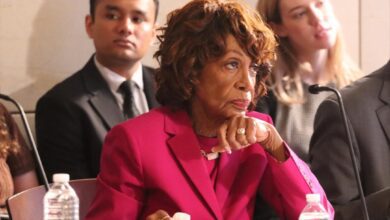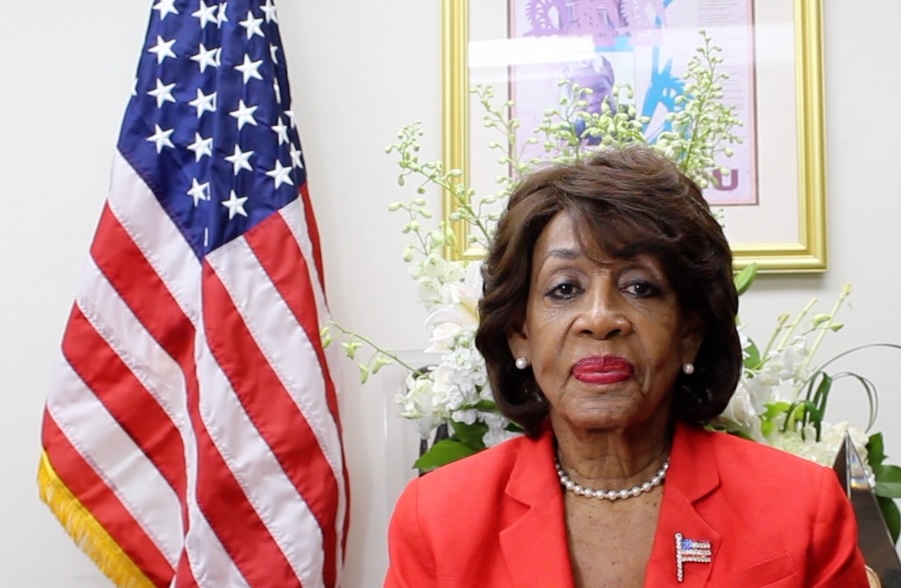Evangelical Mike Johnson ‘Raised Up’ as House Speaker…… | News & Reporting

After weeks of turmoil, House Republicans elected Rep. Mike Johnson on Wednesday as the new speaker of the House, an act the Louisiana congressman suggested was ordained by God.
“I believe that Scripture, the Bible, is very clear: that God is the one who raises up those in authority,” Johnson said in his first speech after being elected speaker in a 220–209 vote. “He raised up each of you. All of us.”
Johnson, an evangelical Christian, peppered his remarks with religious references. He recounted the history of how the motto “In God We Trust” was placed in the House chamber—a rebuke of communism, which many associated with atheism—and highlighted the Declaration of Independence’s use of “Creator.” He also noted the presence of Moses on the wall of the House chamber.
“Through adversity, it makes you stronger,” he said, referencing the three-week period in October that it took Republicans to elect a new speaker to replace the ousted Speaker Kevin McCarthy.
In a later speech on the Capitol steps, Johnson framed his leadership goals by citing Romans 5:3–4.
“I was reminded of the Scripture that says ‘Suffering produces perseverance, perseverance produces character, and character produces hope,’” he said. “What we need in this country is more hope.”
Johnson has been tied to multiple Baptist churches over the years and currently attends Cypress Baptist Church in Benton, Louisiana, according to the Louisiana Baptist Message. He is also a former lawyer and communications staffer with the Alliance Defense Fund, which later became known as Alliance Defending Freedom, a conservative Christian legal firm.
According to CNN, Johnson penned a number of editorials while working at ADF, including ones in which he decried homosexuality as an “inherently unnatural” and “dangerous lifestyle” that could lead to the collapse of “the entire democratic system.”
Johnson has continued to voice support for conservative Christian viewpoints while in office, even hosting a podcast with his wife, Kelly, a licensed pastoral counselor, aimed at providing an “analysis of hot topics and current events from a Christian perspective.”
Among other things, Speaker Johnson has repeatedly rejected many broadly held interpretations of the separation of church and state.
“The founders wanted to protect the church from an encroaching state, not the other way around,” he said during a September 2022 episode of the podcast.
He went on to argue that “a free society and a healthy republic depend upon religious and moral virtue,” arguing that society would crumble without it.
His views echo the writings of David Barton, a controversial Texas activist who has spent years railing against the separation of church and state. On Wednesday, Substack writer Warren Throckmorton pointed out that Johnson lauded Barton during a 2021 talk to a group of state legislators organized by WallBuilders, an organization founded by Barton.
“I was introduced to David and his ministry a quarter century ago, and it has had such a profound influence on me and my work and my life and everything I do,” Johnson said at the time.
Johnson’s victory was celebrated by Brent Leatherwood, head of the Southern Baptist Convention’s Ethics and Religious Liberty Commission. Johnson served on the commission’s board from 2004 to 2012.
“Mike Johnson, a name familiar to many Southern Baptists, has been tapped to lead the chamber, and I want to offer my personal congratulations to him,” Leatherwood said in a statement.
He later noted that his first Capitol Hill meeting as head of ERLC was with Johnson and lauded him as someone who “carries an abiding devotion to our convention of churches, subscribes to the principles that are dear to so many Southern Baptists and has deep pride in our nation.”
Johnson’s views are likely to clash with that of many of his colleagues on the other side of the aisle. His election comes the same day as a House Subcommittee on National Security, the Border and Foreign Affairs hearing, which included a discussion of Christian nationalism between Rep. Maxwell Frost of Florida, who said he was raised Southern Baptist, and Amanda Tyler, who heads the Baptist Joint Committee for Religious Liberty.
During their exchange, Frost recalled recent remarks by Rep. Lauren Boebert of Colorado, who declared that “the church is supposed to direct the government, the government is not supposed to direct the church.”
“(The Bible) warns us against people who would preach of a Christ that differs from the true Christ we learn about in the Bible,” Frost said. “That’s exactly what Christian nationalism is doing.”
Johnson also has ties to former President Donald Trump, having supported the effort to stop the certification of Joe Biden’s victory in the 2020 election—a movement based on erroneous claims that ultimately culminated with the January 6, 2021, attack on the US Capitol. Trump celebrated Johnson’s nomination on Truth Social earlier on Wednesday.
Johnson ascends to the speakership after three weeks of chaos in the House spurred by the ouster of McCarthy from top leadership.
The resulting jockeying for power proved to be a surprisingly religious affair: When Rep. Jim Jordan of Ohio vied for the chair, he was introduced by Rep. Elise Stefanik, who cited the biblical Book of Esther to insist Jordan was to be lifted up for the position “for such a time as this.”
When Jordan later failed to win the speakership multiple times, Rep. Mike Gallagher of Wisconsin, who is Catholic, reportedly left a heated Republican caucus meeting saying he was so upset he needed to “go up to the chapel and pray the rosary.”
When Jordan decided to pursue the speakership yet again he did so after referencing in a news conference a verse from the New Testament book of 1 Timothy, saying he needed to “Fight the good fight of the faith.” (Jordan failed that vote, too.)




